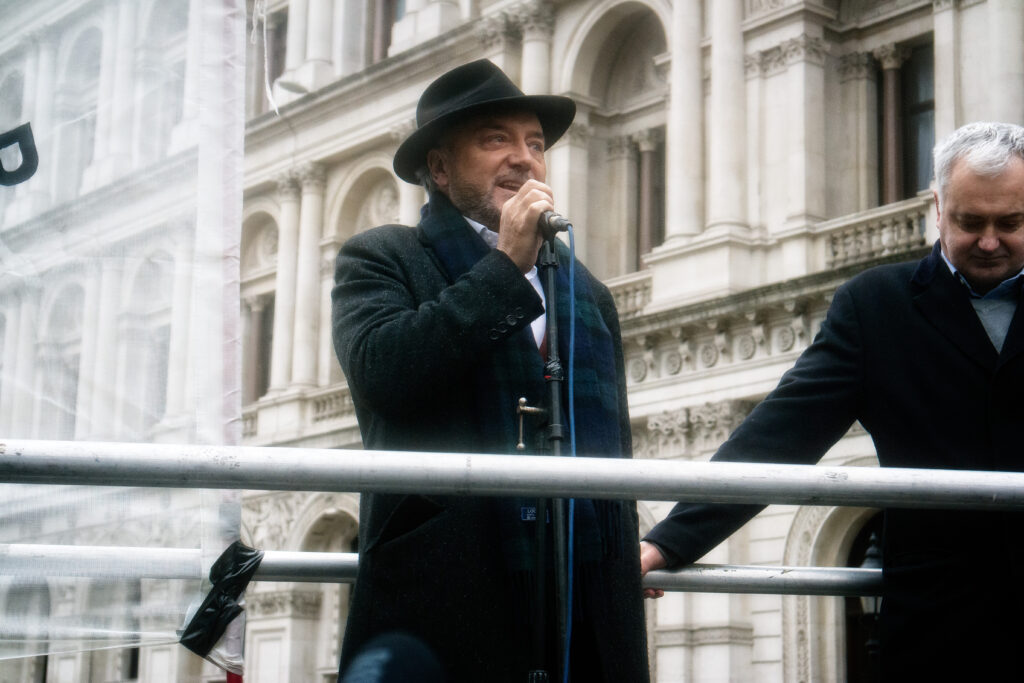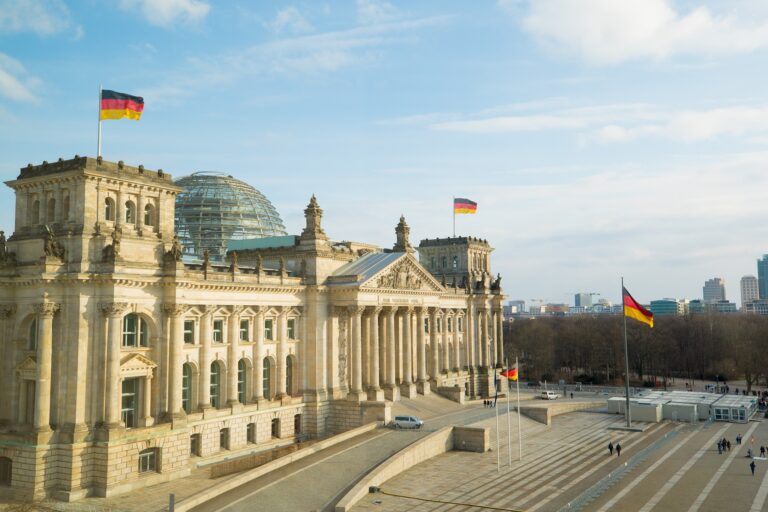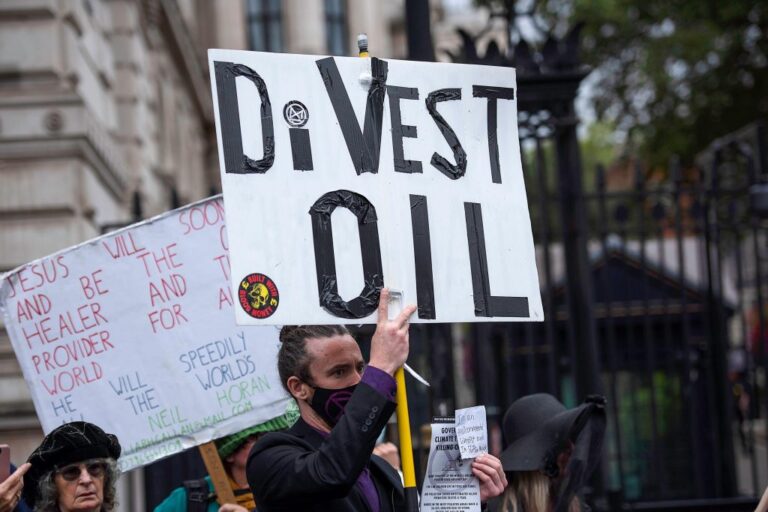
Dr Paul Stott
Head of Security and Extremism

There are three big take-aways from events in Rochdale.
Firstly George Galloway’s victory will inspire a series of challenges to Labour from pro-Palestinian candidates. This was happening anyway with Leanne Mohamad committed to standing against Wes Streeting in Ilford North, and Tasnime Akunjee taking on Rushanara Ali in Bethnal Green and Stepney. Those activists will have an extra spring in their step today, while Galloway claims to have been approached by a series of potential candidates from neighbouring constituencies. Keir Starmer’s consolidation of power within the Labour party also left at least two big beasts growling outside the tent – Jeremy Corbyn and Diane Abbott. Both are yet to declare their intentions.
Prior to the October 7th attacks on Israel, all looked rosy for Sir Keir Starmer. Opinion polls had him a mile ahead, and bar a few Corbynista malcontents, the party appeared broadly united, as those about to win power often are. That has now changed. Just as the war in Iraq removed the air of invincibility from Tony Blair, so the conflict between Israel and Hamas has re-divided Labour. Starmer has responded in two distinct ways. The first has been to recognise that Israel was going to wage war in Gaza, regardless of anything the leader of the opposition in the United Kingdom said or did. Labour calls for a ceasefire have appeared only gradually. But it is the second element in Labour’s approach which may have the greatest ramifications for the country. Labour has opted to go hard at the Conservatives ‘Islamophobia,’ concentrating their big guns at Suella Braverman, Lee Anderson and Liz Truss, and in turn asking Rishi Sunak to move against all three.
This approach deftly pivoted attention away from the Speaker of the Commons’ admission that he broke parliamentary procedure to allow a Labour motion on Gaza, due to threats being made to MPs. Not only did the Islamophobia furore move debate on from the issue of Islamist threats,
it raises significant questions about how a future Labour government will approach the issue. In 2019 the Conservatives rejected as unworkable an All-Party Group of British Muslims definition of Islamophobia. Would Prime Minister Starmer? Accepting such a definition, which would have serious ramifications for both freedom of speech and the 2010 Equality Act, currently looks like a convenient olive branch to Muslim activists.
The third takeaway from Rochdale is the question of what Galloway’s success tells us about British politics, and where our society is heading. His current vehicle, the Workers Party of Britain, evokes little love on the Left who dislike Galloway’s support for Brexit, his flurries of social conservatism and the party’s origins. Galloway has become the public face of the Workers Party, while other founders such as Joti Brar, of the Stalinist Communist Party Great Britain (Marxist Leninist), and Galloway’s former deputy, have fallen by the wayside.
Galloway’s pitch in Bethnal Green in 2005, Bradford West in 2012 and Rochdale in 2024 was directed primarily at one section of the community – Muslim voters. In Rochdale his campaign placards were in the colours of the Palestinian flag, and Galloway declared the intention of being a voice for Gaza in parliament. Some ugly rhetoric also emerged with Galloway referring to the Labour Friends of Israel as the ‘Labour Fiends of Israel.’
Separate letters appear to have been distributed in predominantly ‘white’ and predominantly ‘Muslim’ areas of the town, the latter stating “I have fought for Muslims at home and abroad all of my life.” A very different letter for non-Muslims stressed Galloway’s support for Britain, small businesses and law and order, even down to offering to arrest grooming gangs himself. Neither script mentioned the Workers Party of Britain.
Translating pro-Palestinian activism into political victories in a general election is however, a much bigger task than the one George Galloway has managed in Rochdale. A general election is about who is Prime Minister – and that means it is largely Rishi Sunak versus Keir Starmer. National issues such as the economy, the health service and the criminal justice system are likely to predominate, and the turnout (which was 37% in Rochdale) will be far higher at a likely 65-70%. Small parties and independent candidates are easily squeezed to such a backdrop, more so if this is a transformative election in the style of 1979 or 1997.
Much therefore depends on the extent to which activists from different traditions – primarily the Far-Left and Muslim representative organisations – can plan and co-ordinate their activities and produce a programme credible to voters. A Red-Green alliance anyone? This weekend in London and next month in Blackburn independent councillors, Muslim representatives and anti-war activists are meeting for ‘No ceasefire, no vote’ conferences. The ball is now in their court. Here attention also turns to The Muslim Vote, a campaign organisation whose backers include the Muslim Association of Britain, MEND, Prevent Watch and the Muslim Council’s of Scotland and Wales. The Muslim Vote’s platform is clear “This election signals a shift – Muslim issues at the forefront. We will no longer tolerate being taken for granted. We are a powerful, united force of 4 million acting in unison.”
What does this mean for the UK? Comparatively small political parties can impact beyond their numbers, even if they fail electorally. Consider the Communist Party of Great Britain in the trade union movement during the Cold War, or the National Front on the streets of London in the 1970s. The idea of voting in terms of faith – as opposed to economic interest or ideological affiliation, is unusual but not unique in the United Kingdom. It contributed to the sectarian nature of Northern Ireland politics and flared in the past on the west coast of Scotland and until the 1960s, in Liverpool. Nor is this era immune to sectarianism – consider the divisions between Hindus and Muslims in Leicester, and the violence which followed.
There is little doubt that some within the leadership of Muslim representative organisations would be very happy to lead and direct a Muslim ‘block vote’ this year. We simply do not know what impact this will have on the United Kingdom. As George Galloway made his acceptance speech in Rochdale, a heckler from Just Stop Oil began shouting, and one of the independent candidates, climate activist Mark Coleman, threw orange confetti in Galloway’s direction. No one seemed to care. Much bigger issues are afoot.
Dr Paul Stott is the Head of Security and Extremism at Policy Exchange.


